Innovators to Watch
Innovators to watch
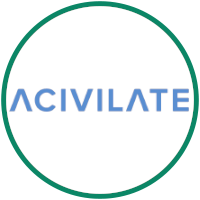 | Acivilate |
City: Atlanta, Georgia
Year Founded: 2014
Website: https://acivilate.com/
Segment: Software Provider
Measures of Success
- 60% increase in graduation rate in a county-level diversion program
- 450 people transitioning from incarceration to the job market received coaching and employment assistance from more than 50 coaches in two states
- 15 organizations coordinate services in a single county
- Demonstrated reduction in disciplinary incidents for people who are incarcerated
The Organization
Acivilate is a woman-owned organization focused on bridging communication and information gaps between government agencies, service providers, and clients experiencing major life transitions, such as release from incarceration, and their caregivers. The organization’s primary offering is a case management and information-sharing platform called Pokket. Pokket provides secure, privacy-compliant tools for collaborative case planning, communication, and information-sharing among service providers, corrections agencies, and people with records. By keeping all stakeholders on the same page with synced, up-to-date information, Pokket is designed to prevent individuals and their specific needs from falling through the cracks. This approach reduces the risk of recidivism, streamlines workflows, and leads to better post-release outcomes.
Why Acivilate?
Acivilate is trying to solve a logistical problem that hampers the delivery of services to people with records: The stakeholders rarely have a good idea of what the other stakeholders are doing, when they’re doing it, and what knowledge or critical updates they might have. Acivilate offers a solution not only for people who are currently and were once incarcerated but also for anyone within their ecosystems of support. Cofounder and CEO Louise Wasilewski (whose family is system-impacted) spent two years conducting more than 600 interviews with people who are formerly incarcerated, state corrections officials, and fair chance employers and learning how to apply psychological principles to service delivery before building Pokket.
 | JSTOR |
City: New York, New York
Year Founded: 2017 (the Access in Prison initiative)
Website: https://about.jstor.org/jstor-access-in-prison/
Segment: Learning Content Provider
Measures of Success
- JSTOR Access in Prison collection provides learners and researchers who are incarcerated with access to the same scholarly literature as any other user: more than 14 million academic journal articles, 100,000 books, and millions of images and primary source materials in 75 disciplines
- Currently providing JSTOR access to more than 1 million people who are incarcerated worldwide, in coordination with more than 1,400 carceral facilities
- Created an index of the 500,000 most frequently cited journal articles; learners and researchers who are incarcerated can download or access it via USB flash drive
The Organization
JSTOR is effectively a searchable online library. It preserves digital copies of millions of journal articles, books, images, and other scholarly materials, making them accessible to users worldwide through a web-based platform. Users can bookmark materials they want to revisit by saving them to a virtual workspace, which also helps users organize their resources. JSTOR is typically made available through partnerships with libraries, schools, or other organizations, but an individual can also create a JSTOR account and access up to 100 articles per 30-day period for free.
Why JSTOR?
JSTOR is run by ITHAKA, a nonprofit organization focused on improving access to knowledge and education. Through its Access in Prison initiative, JSTOR aims to increase access to its collection among people who are incarcerated, minimize censorship of materials, and work with corrections officials to accommodate security concerns they might have about learners accessing those materials. For example, JSTOR can offer USB flash drives loaded with the 500,000 most-cited articles to facilities that limit internet access. That enables learners to access JSTOR content offline.
 | Justice Tech Solutions |
City: Santa Ana, California
Year Founded: 2018
Website: https://justicetechsolutions.com/
Segment: Hardware Provider
Measures of Success
- 18,000 laptops sold across 17 states
- Approximately $3 million in sales in 2024
The Organization
Justice Tech Solutions (JTS) produces secure customizable laptops exclusively for use in prisons and jails. Initially, JTS focused on finding ways to deliver educational content to people who are incarcerated. The laptop it developed was intended to be the vehicle for delivering that content. But then JTS learned that there was a large unmet need for secure laptops and began selling its laptops to education and training providers who needed hardware on which to deliver their content. JTS laptops have clear plastic cases and other features designed to make them difficult to disassemble or misuse. For example, they don’t have common laptop ports, which makes it hard for users to transfer files to or from the computers. Moreover, the devices can be docked to proprietary docking stations that manage their content, and the amount of internet connectivity allowed can be tailored to the specifications of individual facilities.
Why Justice Tech Solutions?
JTS provides a secure way to deliver content to people who are incarcerated—a needed alternative in a market dominated by a few hardware providers whose products only work with proprietary software and content. JTS demonstrates its commitment to expanding access to education by pricing its devices affordably. And the organization runs lean: Founder Jeremy Schwartz is the only full-time employee. Recognizing that many corrections facilities don’t have the staff capacity or IT expertise to effectively use education technologies, JTS provides informal IT support to stakeholders that deliver education programs to people who are incarcerated to help partners set clear, agreed-upon usage guidelines and ensure that everyone can use the laptops effectively.
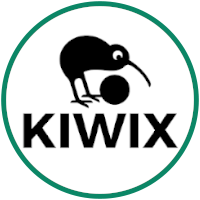 | Kiwix |
City: Lausanne, Vaud, Switzerland
Year Founded: 2017
Website: https://kiwix.org/en
Segment: Learning Content Provider
Measures of Success
- An estimated 10 million to 12 million people worldwide access the platform per year; though the exact number of users is uncertain because the system works offline and users share content via local computer networks and/or portable storage media such as CDs and USB flash drives.
- Each year, the platform serves roughly 15,000 people who are incarcerated worldwide, about 2,000 to 3,000 of whom are in the United States. Formerly incarcerated individuals can continue to access Kiwix and most of the available learning content after release.
- Kiwix estimates the economic impact of its solutions that are used in prisons, jails, and other carceral spaces to be $42 million per year via decreases in recidivism and other factors.
The Organization
Kiwix offers a free open-source platform that people around the world use to access internet content without a stable internet connections. The platform can store entire websites for offline viewing via the Kiwix app. The app and its downloaded files can work without an internet connection once they’ve been stored locally. Kiwix’s technology can harvest almost any site, but the organization typically focuses on educational content.
Why Kiwix?
Kiwix solves a critical access gap for people who are incarcerated, but it can also meet the needs of anyone with limited internet access. Kiwix has partnerships with providers of technology to prisons and jails in the United States and Europe. Important features of the platform include the ability to selectively redact content, which makes it suitable for use in settings where officials want to limit access to content deemed inappropriate. The Kiwix team has discovered several unexpected use cases for the software—it can be used to bypass government censorship rules, share information during natural disasters, and for general archiving purposes—which demonstrates that the company has room to grow.
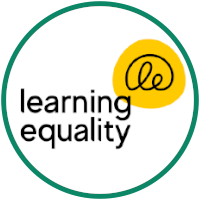 | Learning Equality |
City: San Diego, California
Year Founded: 2012
Website: https://learningequality.org/
Segment: Software Provider
Measures of Success
- Flagship product Kolibri has been installed over 300,000 times in more than 220 countries and territories. Between Kolibri and first-generation product KA Lite, Learning Equality has reached more than 13 million people globally.
- Kolibri enables quality, student-centered learning in contexts as varied as schools in India, orphanages in Cameroon, refugee camps in Kenya, First Nations community centers in northern Canada, and prisons across the United States. States. Its content library offers open access to learning materials such as Khan Academy, PhET, CommonLit, etc., in over 173 languages.
The Organization
Learning Equality brings offline-first educational content to communities that lack reliable internet connectivity. The organization’s first product, KA Lite, enables users to access Khan Academy educational content offline from a local server. Its latest product, Kolibri, replaces KA Lite and functions as a free, open-source learning management system that delivers content from many different providers.
Why Learning Equality?
Learning Equality enables teachers and learners to have access to educational technology, regardless of where they live. The organization’s offerings can be used in a variety of ways, and in the United States one of its primary use cases is the delivery of educational content in prisons, jails, and other carceral settings where access to technology is limited. Kolibri offers the same features one would expect from a fully online learning management system but in an offline-compatible package, including the ability to track the time learners spend in courses or with certain content and the ability to issue certificates. The organization also sees integration of artificial intelligence into its solutions as a potential way to drive growth and toward that end has begun to explore the possibility of using of AI in areas such as curriculum alignment and matching student interests to available content.
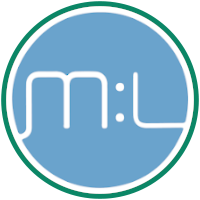 | Mission: Launch and R3 Score Technologies |
City: Washington, DC
Year Founded: 2012 (Mission: Launch), 2018 (R3 Score Technologies)
Website: https://www.mission-launch.org/; www.R3Score.com
Segment: Learning Content Provider; Software Provider
Measures of Success
- Formed a coalition of HR and compliance professionals, trade associations, and community leaders dedicated to building a skilled workforce for in-demand jobs
- Aim to place 1,000 people with records into jobs in energy, public utilities, and/or advanced manufacturing over the course of three years through the LaunchPad Career Pathways Program
- Provide job readiness programs to 650,000 people who are incarcerated through a tablet application called R3Up
The Organization
A nonprofit cofounded by a mother and daughter team after the former was released from prison, Mission: Launch connects people returning to the community following incarceration with employment, housing, and financial resources. To do this, Mission: Launch partners with trade associations and employers that are open to hiring people with records.
R3 Score is a for-profit software company from the same cofounders as Mission: Launch. It offers two solutions: R3Up and R3 Score Signature Reports. R3Up is a tablet-based application with educational content and resources that help people who are incarcerated prepare for reentry. It includes programming focused on changing thought patterns through cognitive behavioral therapy , peer learning video podcasts, and job/career exposure programming. Signature Reports is a tool that helps employers better contextualize the information they gain from criminal background checks.
Why Mission: Launch and R3 Score?
Mission: Launch and R3 Score are streamlining reentry support by building an ecosystem that offers realistic pathways to employment. Mission: Launch focuses on targeted partnerships with willing employers. R3 Score offers a common-sense alternative to traditional background checks by providing more-accurate risk profiles of jobseekers, while R3Up offers skills training coursework and other reentry resources in an accessible tablet app.
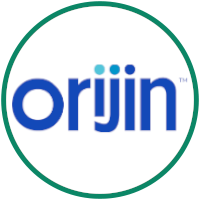 | Orijin |
City: New York, New York
Year Founded: 2014
Website: https://orijin.works/
Segment: Hardware Provider; Software Provider
Measures of Success
- Platform deployed in 17 states and Washington, DC
- Platform reaches over 63,000 learners per year
- The Blount County, Tennessee, jail reported a 50% reduction in recidivism among individuals with a first-time conviction who engaged with the Orijin learning platform
- A Massachusetts jurisdiction reported a 29% drop in violent offenses after the introduction of Orijin’s platform
The Organization
Founded in 2014 as American Prison Data Systems, Orijin provides correctional facilities across the country with secure tablet computers connected to a cloud-based learning and communications platform. The company believes that education is a rising tide that lifts all boats, and its mission is to better prepare learners who are incarcerated for sustainable employment post-release by increasing access to and long-term engagement with educational programming.
Why Orijin?
Under contracts with regional corrections agencies, Orijin provides all learners who are incarcerated within an agency’s jurisdiction with access to educational programs and services at no cost to the learners. To motivate members of this population to engage in learning, Orijin encourages them to design their own “master plans.” This approach includes giving users behavioral “nudges” to continue engaging in learning by, for example, embedding “ads” into entertainment content to showcase educational content. Orijin is a “learning first” provider that thoughtfully considers how to engage learners by taking into account their past (often negative) experiences with education. Orijin partners with other providers to source much of the content offered on its platform because its primary focus is helping learners stay on a consistent path. Orijin is also developing a baseline profile of the skills necessary to be considered employable, which can be used as a job readiness benchmark and correlated with post-release employment outcomes.
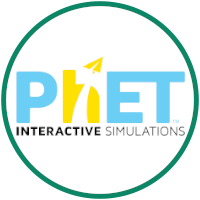 | PhET Interactive Simulations |
City: Boulder, Colorado
Year Founded: 2002
Website: https://phet.colorado.edu/
Segment: Learning Content Provider
Measures of Success
- 1.5 billion online simulation runs (about 200 million to 250 million per year)
- 116,000 teachers have participated in PhET professional development
- More than 300,000 teachers worldwide use PhET simulations in instruction
- Content is available in 129 languages
The Organization
PhET Interactive Simulations is a nonprofit project at the University of Colorado, Boulder, focused on making science and math more accessible and engaging. Founded in 2002 by Carl Wiemen, a winner of the Nobel Prize in physics, the project initially built interactive simulations of physics phenomena for use in postsecondary education. It now offers more than 170 simulations in elementary-, secondary-, and postsecondary-level physics, math, statistics, chemistry, Earth science, space science, and biology. PhET also provides professional development for teachers to help them integrate its simulations into their lessons and offers a variety of teaching tools, including more than 3,000 simulation-based lessons and student worksheets.
Why PhET Interactive Simulations?
PhET simulations are available for free online, can be downloaded for use offline, and cover topics critical to earning a high school equivalency credential or a postsecondary degree, making them an excellent fit for use educational programs for people who are incarcerated. PhET doesn’t currently have an initiative focused on prisons and jails and doesn’t track the use of its simulations in such settings, but the organization is aware that its material is are being used by learners who are incarcerated and it’s interested in expanding access and impact within this population. PhET aims to make its simulations accessible to as many learners as possible. The organization uses volunteer translators to make its simulations and teaching aids available in 129 languages and counting.
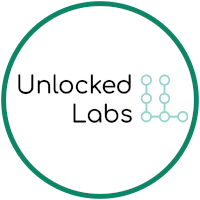 | Unlocked Labs |
City: St. Louis, Missouri
Year Founded: 2022
Website: https://www.unlockedlabs.org/
Segment: Strategic Technology Consultant; Software Provider; Learning Content Provider
Measures of Success
- Over 50% of Unlocked Labs team members are people who are currently or were formerly incarcerated
- Over 5,000 people who are incarcerated have benefited from Unlocked Labs tools to date
- Unlocked Labs tools are being used in several states, including Missouri, New York, Maine, and Alaska
The Organization
A nonprofit focused on expanding access to education for people who are incarcerated, Unlocked Labs consults with corrections officials to develop strategies for deploying secure IT systems in jails and prisons. The organization offers three main tools: a secure operating system for desktops, laptops, and tablets; a single sign-on education platform; and program management software to help track program outcomes.
The Unlocked education platform integrates with commonly used learning management systems, including Canvas, Brightspace, and Kolibri. It can also host content from JSTOR, PhET, Khan Academy, TED Talks, and more, with or without internet access. Faculty and administrators can view learner engagement data, which helps support credentialing. Unlocked Labs also offers an offline IT training course that can be administered securely to people who are incarcerated. The organization runs this program itself at some sites but also makes its solutions available to other providers.
Why Unlocked Labs?
The organization’s solutions are designed to have an immediate impact on the lives of people who are incarcerated. It offers its tools for free or at low cost and also provides technical assistance—a benefit for facilities with limited staff capacity and/or technical expertise. Unlocked Labs not only provides education and training but also hires people who are or were incarcerated—a practice that can allay other employers’ concerns about people with records working in “sensitive” fields like IT.
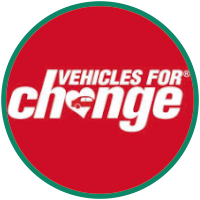 | Vehicles for Change |
City: Halethorpe, Maryland
Year Founded: 1999 (Vehicles for Change); 2016 (Vehicles for Change-VR)
Website: https://www.vehiclesforchange.org/
Segment: Learning Content Provider
Measures of Success
- Virtual reality training program reduces training time by 60%
- VR training currently serves 300 learners per year, with plans to scale to 1,200 learners by the end of 2025
The Organization
Vehicles for Change is a nonprofit founded in 1999 to address one of the main barriers to employment for people in low-wage lines of work—transportation—through car ownership. In 2016, the organization developed an employer-driven, paid, in-person auto technician training program. All trainees are people who face multiple barriers to employment, and most of them have a history of incarceration. Program participants repair donated cars that go to families with low incomes while receiving job placement services and training that leads to ASE vehicle repair certification. Vehicles for Change also partnered with HTX Labs to create VFC-VR, a virtual reality (VR) solution that offers entry-level ASE auto repair training in an immersive virtual environment. VFC-VR is currently being launched in prisons, jails, high schools, and workforce programs nationwide.
Why Vehicles for Change?
The organization’s VR-based training model could serve as a blueprint for other programs that are looking to offer VR-based training to people who are incarcerated. The VR model reduces the need for physical tools, facilities, and instructors, which greatly lowers costs. Vehicles for Change programs build clear pathways to employment for people with records. In addition to its in-person and VR training options, Vehicles for Change has developed a “course in a box” for low- or no-technology environments and is currently offering this offline training at a women’s prison in Maryland. Vehicles for Change has growth potential because its offerings can be implemented in a wide variety of settings.